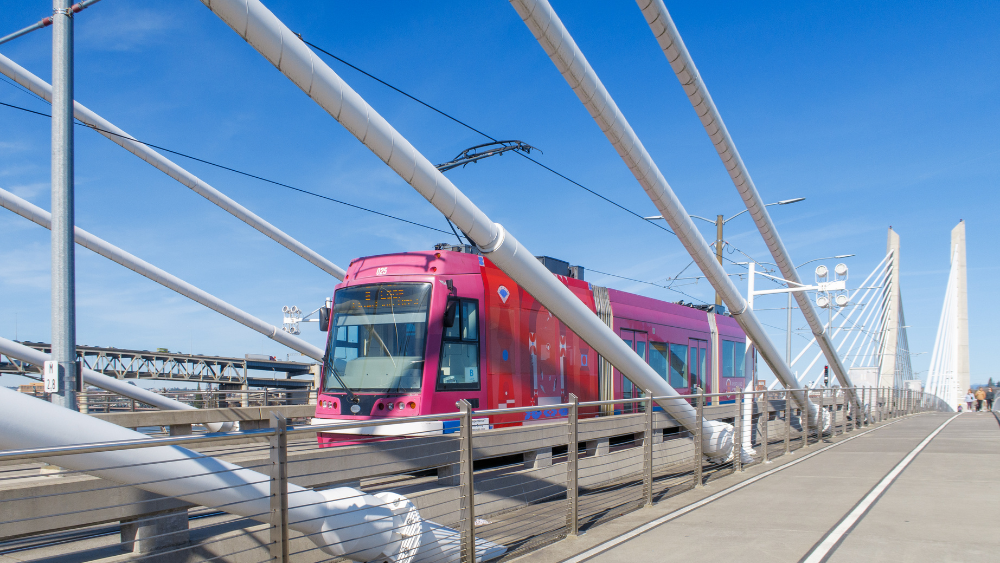Taking on the climate crisis requires long-term thinking and short-term urgency. To meet emissions goals for 2030 on the way to being carbon net zero by 2050, Portland established a three-year Climate Emergency Workplan (CEW) in August 2022.
Here are some takeaways from the two-year progress report recently released by the Bureau of Planning and Sustainability (BPS).
In total, the CEW identified 47 priority actions for 10 city bureaus to collaborate on.
- 72% of those are ongoing and moving forward, but will go beyond the duration of this plan.
- 13% are expected to finish by the end of the next fiscal year.
- 11% are delayed.
- 4% have been completed.
The rub? No additional actions were completed in FY 2023/2024 and Portland is not currently on track to meet its targets. That doesn’t mean nothing was accomplished, though, so rather than focusing on the doom and gloom, here are some recent positives.

Transportation sector emissions dropped below 2020 levels — and 7% below 1990 levels.
Photo by Mark McClure
The Portland Clean Energy Fund invested $600 million into city projects and $700 million in public-private partnerships for the next five years. A few examples include electrifying the municipal fleet, fostering a more equitable tree canopy, and implementing HVAC and other efficiency upgrades at community centers.
Portland remains at the forefront of industrial decarbonization by organizing the Clean Industry Hub and participating in the International Industrial Symbiosis Alliance.
The city also sourced approx. $7 million in external grant funds primarily from the federal government, including $2 million from the US Department of Transportation to pilot a Zero Emission Delivery Zone.
When the CEW ends in 2025, the Sustainability and Climate Commission and Chief Sustainability Officer Vivian Satterfield will direct the next phase of the city’s climate justice plan under Portland’s new form of government.
Stay engaged in the process by joining the fifth and final “Climate Conversations with BPS” online event at 12 p.m. on Thursday, Oct. 17.










